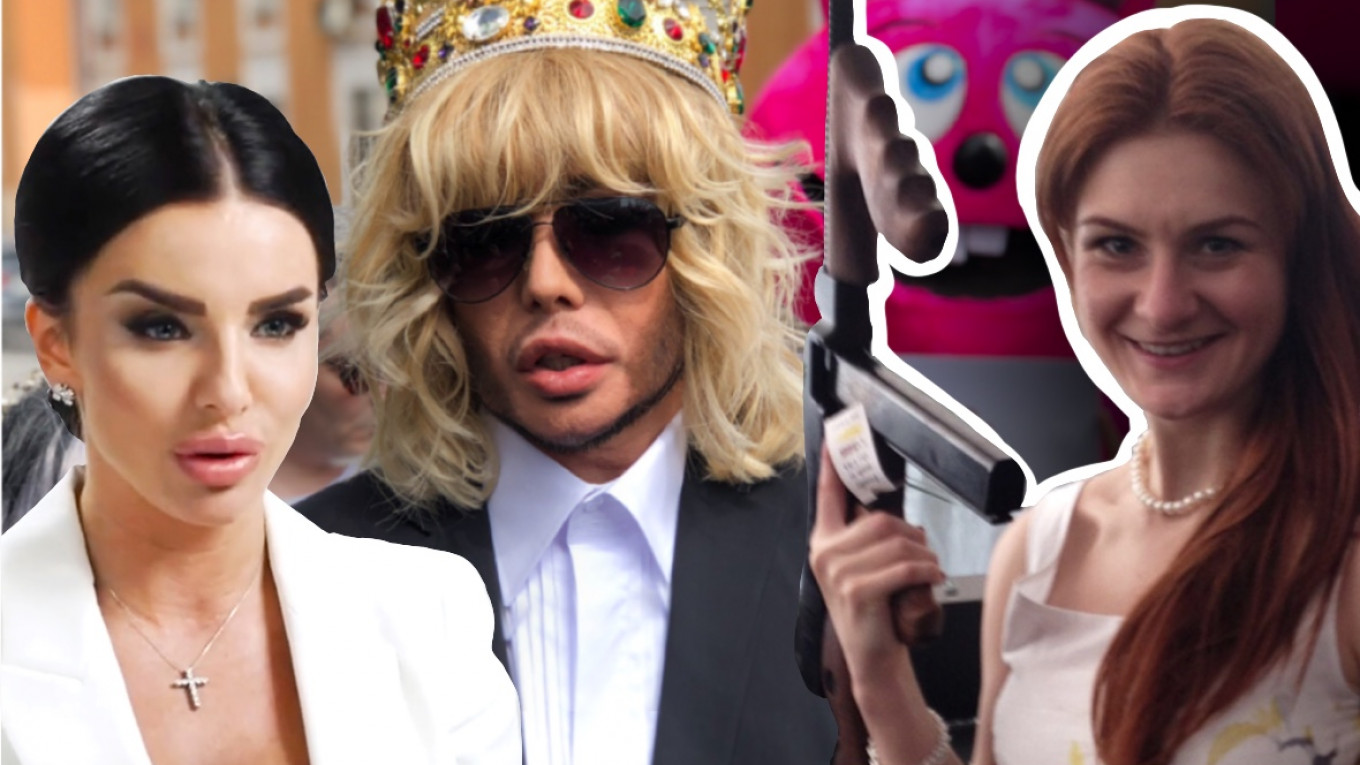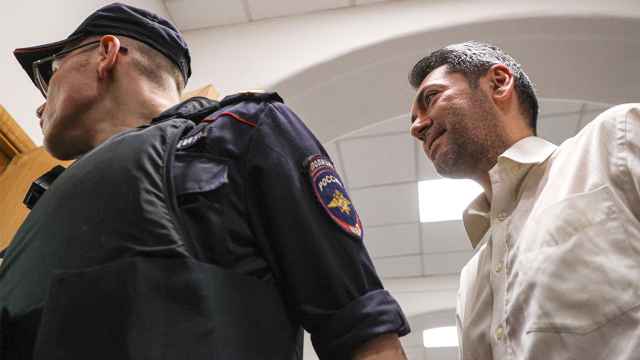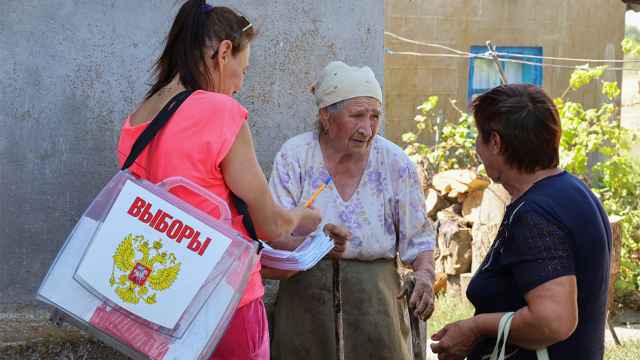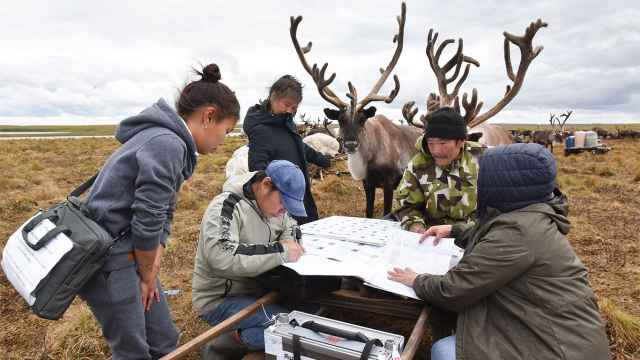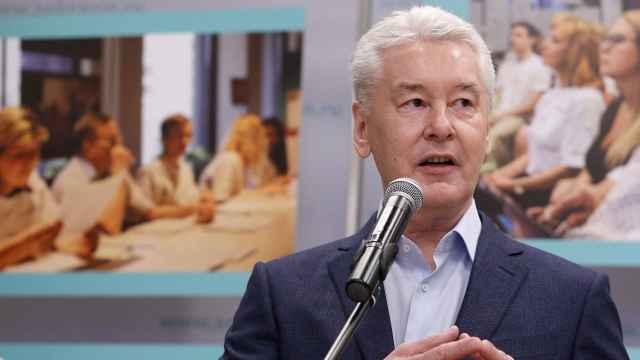Several well-known figures from Russian entertainment, media and sports are now eyeing a career change by seeking seats in the country's September parliamentary elections.
The high-stakes elections for Russia’s lower-house State Duma will see the ruling, pro-Kremlin United Russia party seek to hold onto its majority despite historically low approval ratings.
Here’s a look at some of the famous Russians who are running:
Sergei Zverev
Celebrity hairstylist Sergei Zverev, the self-proclaimed “King of Glamour,” has become the latest famous Russian to announce his run in the elections, the state-run TASS state news agency reported Wednesday.
Zverev, 57, will run as a member of the Green Party, focusing on climate change issues and ecological preservation. He’ll be seeking a Duma seat representing the regions which border Lake Baikal, where he was born.
“This decision was very difficult for me to make,” TASS quoted him as saying at a press conference announcing his run.
The recent easing of Lake Baikal’s environmental protections remains a hot-button issue for Russia’s environmentalists and Zverev said he hopes to work toward systemic change if elected.
"I was born here and am ready to help my small motherland as much as I can," Zverev, who in 2019 was fined for picketing on Red Square against a planned Chinese water-bottling plant on Baikal’s shores, said Wednesday.
Since the 2000s, Zverev has worked as a stylist, television host, musical artist, theater and film actor and reality television star. His flamboyant outfits and voluminous blond hair have commanded attention in post-Soviet Russia.
Maria Butina
Maria Butina, 32, is more famous in the U.S. for her conviction for espionage as well as her gun-rights campaigning in the U.S. and close proximity to prominent Republican figures.
This fall, Butina will run for a State Duma seat representing the Kirov region as part of the United Russia party after she won the May primary.
Butina was imprisoned in the U.S. in 2018 after she pleaded guilty to felony charges of acting as an unregistered foreign agent. According to the Senate Intelligence Committee, Butina attempted to persuade former President Donald Trump's campaign to establish a back-door communications channel with Russia.
She returned to Russia in 2019 after being deported from the U.S. and has since stayed active by hosting a show on the state-run RT broadcaster, becoming a member of Russia's Public Chamber, speaking out publicly about torture in American prisons and her provocative interview with jailed Kremlin critic Alexei Navalny from his prison colony.
Yulia Volkova
Former t.A.T.u. member Yulia Volkova announced her campaign for a State Duma seat representing the Ivanovo region this year but ultimately lost in the United Russia party primaries in May.
Volkova, 36, became world famous as a teenager in the early 2000s as one half of the pop duo t.A.T.u., with hits like “Not Gonna Get Us” and “All The Things She Said” becoming LGBT anthems.
While Volkova and fellow member Elena Katina drew attention and controversy by kissing onstage and in music videos, it was later revealed that their alleged lesbian relationship was a PR startegy.
Volkova’s failed Duma run was her first big foray into politics, but she had performed at political events and rallies as a pop star.
Honorable mentions
Russian comic and television host Sangadji Tarbaev will run for the State Duma as a member of the "New People" party founded by Russian businessman Alexei Nechaev, the Open Media news website reported.
Several prominent Russian athletes have announced their candidacies with the United Russia party including hockey player Vladislav Tretyak and boxer Nikolai Valuev. Biathlete Anton Shipulin (Sverdlovsk region) and figure skater Irina Rodnina (Moscow region) have also announced their reelection campaigns, according to the RBC news website.
A Message from The Moscow Times:
Dear readers,
We are facing unprecedented challenges. Russia's Prosecutor General's Office has designated The Moscow Times as an "undesirable" organization, criminalizing our work and putting our staff at risk of prosecution. This follows our earlier unjust labeling as a "foreign agent."
These actions are direct attempts to silence independent journalism in Russia. The authorities claim our work "discredits the decisions of the Russian leadership." We see things differently: we strive to provide accurate, unbiased reporting on Russia.
We, the journalists of The Moscow Times, refuse to be silenced. But to continue our work, we need your help.
Your support, no matter how small, makes a world of difference. If you can, please support us monthly starting from just $2. It's quick to set up, and every contribution makes a significant impact.
By supporting The Moscow Times, you're defending open, independent journalism in the face of repression. Thank you for standing with us.
Remind me later.


